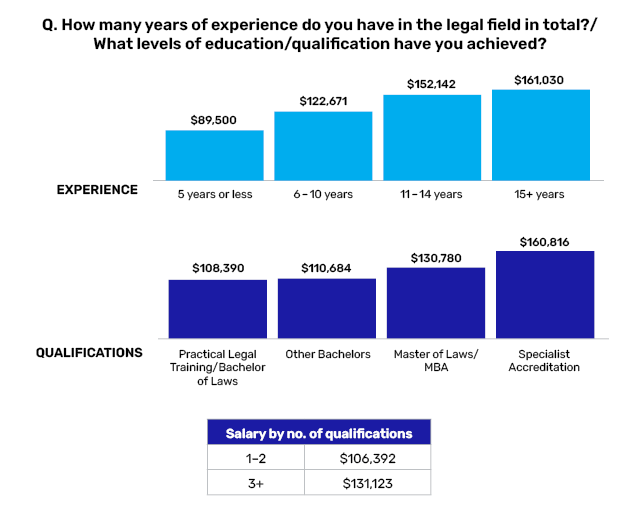EXPLORE THE WORK, SKILLS AND PATHWAYS TO A CAREER IN FAMILY LAW
Family law focuses on the legal aspects of family relationships — from marriage and separation to parenting and property division. It’s one of the most human-centred areas of practice, helping families navigate change, resolve disputes, and rebuild stability after separation.
Family lawyers play a vital role in shaping how families move forward. They advise clients through some of life’s most emotional moments, ensuring fair outcomes that protect children, preserve assets, and promote safety.
At the College of Law, you can specialise in Family Law through postgraduate study that builds your practical expertise in negotiation, litigation, and dispute resolution.

At-a-glance: How to Become a Family Lawyer
This page covers:
- What does a family lawyer do day-to-day?
- Is family law a good area to specialise in?
- Who are the clients of family lawyers?
- What personal strengths suit family law?
- Earning potential in family law
- How stressful is family law compared to other areas?
- Pros and cons of a career in family law
- How do I become a family lawyer?
WHAT DOES A FAMILY LAWYER DO DAY-TO-DAY?
Family lawyers guide clients through the breakdown of relationships and related legal issues. Their work combines client advocacy, communication, and legal strategy.
Typical responsibilities include:
- Advising on property settlements and financial agreements
- Managing parenting arrangements and child support matters
- Drafting settlement agreements, consent orders, and binding financial agreements
- Representing clients in mediation, dispute resolution, or court hearings
- Guiding clients with empathy and clarity through the personal challenges of separation
You may work in private practice, community legal services, or government roles — anywhere people need help navigating family change.
WHO ARE THE CLIENTS OF FAMILY LAWYERS?
Family lawyers advise clients dealing with separation, property division, parenting arrangements, financial disputes, and family violence. Many represent separating couples seeking fair parenting and financial outcomes, while others act in high-asset or complex property cases.
Clients may include parents negotiating shared care, individuals leaving unsafe relationships, or families dividing business and personal assets. You may also assist with protection orders or child support enforcement.
Whatever the circumstances, clear communication and empathy are essential to help people make sound decisions during emotional and often stressful times.
Explore key references and tools in our guide to essential family law resources every practitioner should know about.
WHAT PERSONAL STRENGTHS SUIT FAMILY LAW?
Family law attracts lawyers who combine empathy with clear thinking. It calls for calm under pressure, strong communication, and the ability to guide clients through uncertainty with confidence.
You need to balance compassion with objectivity, understanding your client’s emotional state while keeping decisions focused on practical outcomes. Emotional intelligence, resilience, and adaptability are essential when navigating conflict, complex family dynamics, or sudden legislative change.
Equally important are critical thinking and precision. Drafting, negotiation, and advocacy demand attention to detail and clear reasoning, often under time pressure.
As one College of Law graduate shared, “You can make a lasting difference to a child’s life, that’s what makes it worth it.”
EARNING POTENTIAL IN FAMILY LAW
Your level of education can have a major impact on your earning potential.
Data from the College of Law Legal Salary Survey 2025 shows that lawyers with postgraduate qualifications or specialist accreditation earn, on average, more than $130,000 a year. Around $20,000 higher than those with only an undergraduate qualification.
Source: College of Law Legal Salary Survey 2025
As the demand for skilled family law practitioners continues to grow, advanced qualifications can help you build both expertise and career momentum.


You have to be understanding and empathetic. You really get to use your soft skills, and yes, sometimes give tough advice. But you also help people through one of the hardest times in their lives — and that’s what makes it so rewarding.
Jess Popple, College of Law Graduate

It’s challenging, but incredibly rewarding when you can see the difference your guidance makes to a client’s wellbeing and future.
Jess Popple, College of Law Graduate
HOW STRESSFUL IS FAMILY LAW COMPARED TO OTHER AREAS?
Family law can be emotionally demanding, but it’s also one of the most personally fulfilling. You’ll see clients at their most vulnerable, and your guidance can restore stability and hope.
The work requires patience and professionalism, but many family lawyers find satisfaction in knowing their efforts directly improve clients’ wellbeing and future outcomes.
WHAT ARE THE PROS AND CONS OF A CAREER IN FAMILY LAW?
Most practitioners say the rewards far outweigh the challenges — especially when clients express relief and gratitude for the outcomes achieved.
| Pros | Cons |
|---|---|
|
Personally rewarding, people-focused work |
Emotionally charged cases can be draining |
|
Constant demand across sectors |
Requires emotional maturity and self-care |
|
Opportunities to develop advocacy and negotiation skills |
Court delays and legislative changes can add pressure |
|
Long-term career stability |
HOW DO I BECOME A FAMILY LAWYER?
Family law is a career built through experience, skill, and continued learning. Many lawyers start with exposure to family matters during their law degree or early legal work and then advance through postgraduate study.
Your pathway typically includes:
- Bachelor of Laws (LLB) or Juris Doctor (JD) (3–4 years)
- Practical Legal Training (PLT) – the College offers a Family Law elective
- Admission to practice through your state’s Legal Profession Admission Board
- Supervised practice at a law firm, ideally specialising in family law
- Postgraduate study to deepen expertise and advance your career
Once admitted, you can continue to build expertise through practical learning, postgraduate study, and accreditation programs.
Where's Next in Family Law: Your Learning Pathway Explained
Explore how to advance your career in family law through practical experience, postgraduate study, and tailored programs that support your professional growth at every stage.
Learn MoreStep 1: Build core skills
Early in your career, short courses help you strengthen your technical and client-facing skills. The College’s CPD courses and Digital Certificates are designed for new or practising lawyers who want practical learning in areas such as:
- Initiating applications for parenting orders or financial orders
- Applications for divorce
- Oral Advocacy in family law Proceedings
- Mediation and negotiation techniques
These are ideal if you’re exploring family law or preparing to take on more complex cases.
Step 2: Advance through postgraduate study
As your experience grows, postgraduate qualifications help you build advanced knowledge and move into more complex, higher-value family law matters. The College offers three key programs designed specifically for practising family lawyers:
1. The Graduate Diploma of Applied Law (Family Law) provides a shorter, more focused option for lawyers who want to build specialist family law skills without committing to a full Master’s program.
2. The Master of Laws (Applied Law) majoring in Family Law suits those who want flexibility. You can combine Family Law with another major or take electives to broaden your expertise across different areas of practice.
3. The Master of Applied Law (Family Law) is ideal if you want to specialise deeply in Family Law, focusing entirely on family-related subjects to strengthen your expertise in this field.
All programs are flexible and practice-focused, with online delivery designed to fit around professional life.
Step 3: Broaden your professional scope
With postgraduate qualifications and experience, many lawyers progress to roles as accredited specialists, mediators, or FDRPs — or establish their own practices.
Each step in your learning journey builds the practical expertise, confidence, and credibility that define successful family law practitioners.
COMPARE YOUR FAMILY LAW STUDY OPTIONS
| CPD Courses | Digital Certificate | AMDRAS Mediator Training | Graduate Diploma (FDRP) | Graduate Diploma (Family Law) | Master of Applied Law (Family Law) | Master of Applied Law (FDRP) | |
|---|---|---|---|---|---|---|---|
| Duration | 1–7 hours per course | 40 hours | 5-day course + 2-day assessment | 7–9 months | 1 year part time | 2 years part time | 2 years part time |
| Intake date / start time | Anytime | Anytime | Rolling dates throughout the year (check schedule) | Feb, Aug | Feb, May, Aug, Nov | Feb, May, Aug, Nov | Feb, May, Aug, Nov |
| Investment | From $99 | $1,699 | $2,990 (training program) $1,200 (assessment) | $4,150 per subject | $4,150 per subject | $4,150 per subject | $4,150 per subject |
| Level of qualification | Non-award (CPD) | Certificate (non-award) | National accreditation | Graduate diploma | Graduate diploma | Master of Laws (LLM) | Master of Laws (LLM) |
| Delivery mode | Online (live & on-demand) | Online, self-paced | Online with live assessments | Online | Online | Online | Online |
| Outcomes | CPD points | Certificate of Completion | Accredited mediator (AMDRAS) | FDRP eligibility | Graduate diploma qualification | Master of Laws (LLM) | Master of Laws (LLM) & FDRP Eligibility |
| Who it’s for | New or practising lawyers | Early, mid-career or experienced lawyers | Mid-career or experienced lawyers and allied professionals | Mid-career or experienced lawyers and allied professionals | Experienced lawyers | Experienced lawyers | Experienced lawyers seeking FDRP accreditation |
| Practical or interactive training included | Yes | Yes | Yes | Yes | Yes | Yes | Yes |
Updated : November 2025
ADVANCING YOUR CAREER WITH THE COLLEGE OF LAW
Family law is about more than resolving disputes — it’s about helping families find stability and strength after change.
The College of Law’s postgraduate programs in Family Law prepare you for complex property, parenting, and financial matters. You’ll learn from practitioners who understand the realities of family practice and how to manage both the legal and human sides of each case.
FREQUENTLY ASKED QUESTIONS
Most family lawyers manage property settlements, parenting arrangements, and family violence matters. You may also assist with spousal maintenance, child support, or binding financial agreements, depending on your client’s needs.
Yes. Family law remains one of the most in-demand practice areas. Demand is steady across private practice, community legal centres, and government roles, driven by ongoing need for advice on separation, parenting, and financial issues.
You can build expertise across all aspects of family practice through subjects such as Foundations of Family Law Practice, Property, Maintenance and Child Support, Conducting Family Law Matters, Advanced Parenting Issues, Advanced Issues in Property, Maintenance and Child Support, Development and Management of a Family Law Practice, Family Dispute Resolution, and Advocacy in Family Law.
Yes. Many family lawyers complete the Family Dispute Resolution Practice qualification to expand their expertise and offer mediation services. It complements Family Law study by equipping you to help clients resolve disputes outside of court and meet accreditation requirements for family dispute resolution practitioners.
Graduates often move into specialist practice, mediation, or leadership roles within family law teams. Others transition into policy, community advocacy, or judicial support positions where advanced family law knowledge is highly valued.
Family lawyers use CPD to strengthen skills across advocacy, procedure, ethics and practice management, while supporting clients through highly sensitive and complex matters.
If you want a comprehensive foundation, the Essential Guide to Family Law Practice CPD bundle provides step-by-step guidance across core family law matters, helping you build confidence in advising clients and managing proceedings.
Lawyers looking to deepen advocacy capability can also complete the Digital Certificate in Family Law Advocacy, a structured program focused on oral, written and ethical advocacy in family law.
You can also tailor your CPD with focused courses, including:
- Applications for Divorce: Step-by-step Guide
- Family Law Advocacy Ethics and Procedure: On-demand Short Course
- Initiating Applications for Financial Orders (Family Law): Step-by-step Guide
- Initiating Applications for Parenting Orders (Family Law): Step-by-step Guide
- Managing Your Family Law Practice: Skills Series
- Oral Advocacy in Family Law Proceedings: On-demand Short Course
- Seeking Urgent and Interim Orders (Family Law): Step-by-step Guide
- Starting Your Family Law Practice: Skills Series
- Written Advocacy in Family Law Proceedings: On-demand Short Course
The CPD Digital Subscription provides on-demand access to a library of 150+ CPD courses, allowing you to build knowledge across all mandatory areas and focus on topics most relevant to family law practice at your own pace.


